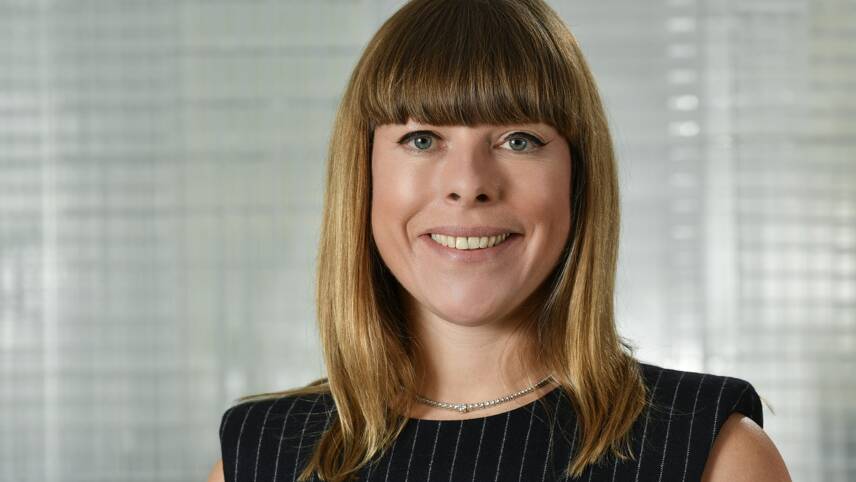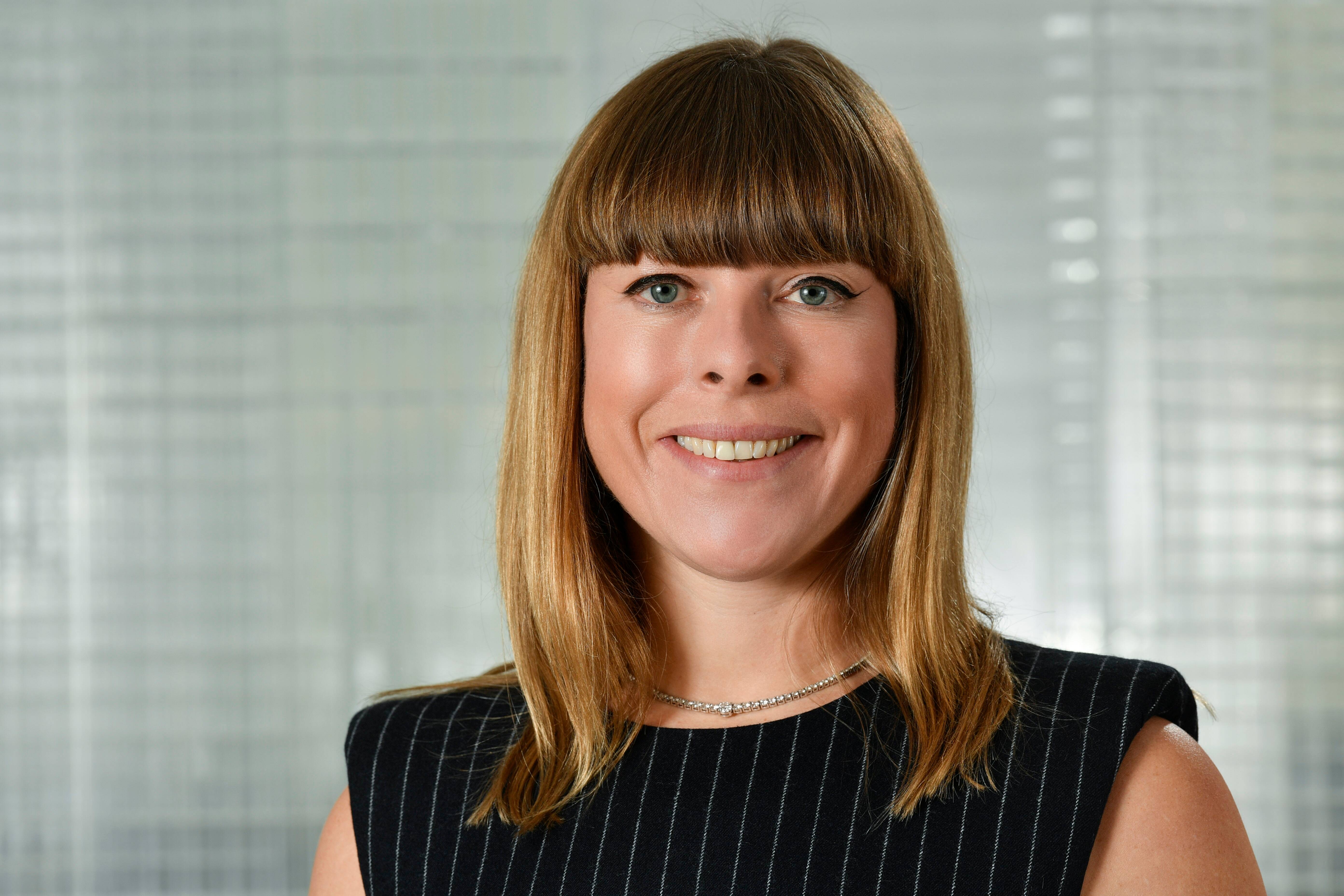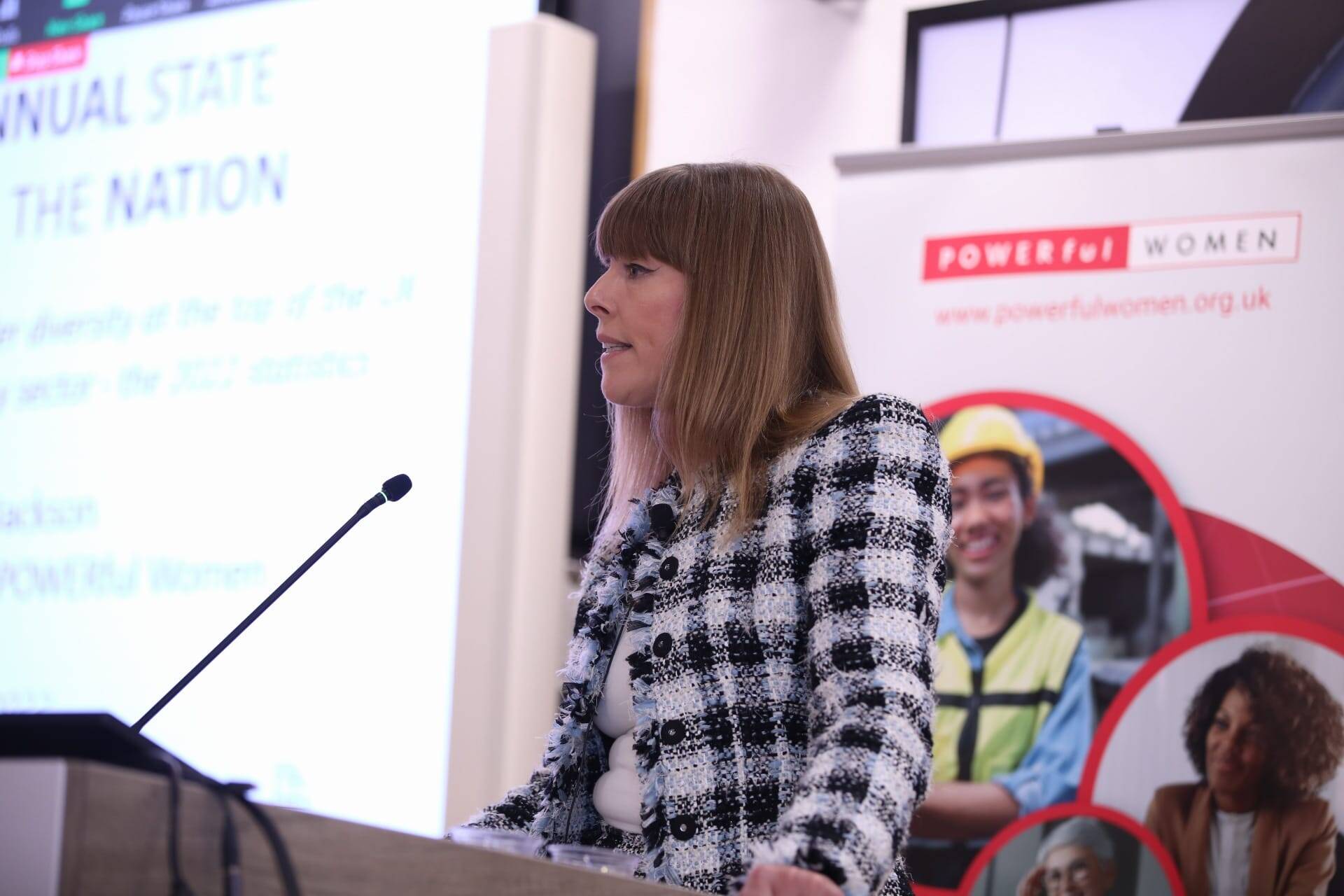You’ve reached your limit!
To continue enjoying Utility Week Innovate, brought to you in association with Utility Week Live or gain unlimited Utility Week site access choose the option that applies to you below:
Register to access Utility Week Innovate
- Get the latest insight on frontline business challenges
- Receive specialist sector newsletters to keep you informed
- Access our Utility Week Innovate content for free
- Join us in bringing collaborative innovation to life at Utility Week Live

Appointed chair of POWERful Women – which has been championing the greater representation of women at the top of the UK energy industry since 2014 – in May, Shell’s executive vice president, acquisition, divestment and new business development, Katie Jackson sets out the link between greater diversity, innovation and high performance.
What was your first job in the utilities sector?
 I have spent my whole career in energy – initially as a drilling engineer, then in investment banking where I also worked across utilities, and latterly in three companies: Anadarko, Equinor and Shell. My roles at Equinor and Shell have included growth in the renewable power space both in generation, B2B and B2C.
I have spent my whole career in energy – initially as a drilling engineer, then in investment banking where I also worked across utilities, and latterly in three companies: Anadarko, Equinor and Shell. My roles at Equinor and Shell have included growth in the renewable power space both in generation, B2B and B2C.
What work experience or qualifications did you have before moving into the industry?
My degree is actually in biology but I did my thesis on a fieldwork expedition in Siberia studying the impact of oil and gas operations on arctic tundra and this was what led me into the industry.

What has been your career highlight thus far?
At Anadarko, I was part of the team that acquired two companies on the same day in June 2006 for $23 billion (£18.7 billion). This led to a complete portfolio transformation for the company, providing scale and focus, alongside a complex integration process. It really accelerated my experience level and depth of leadership understanding.
What is the biggest challenge you’ve faced during your time in utilities?
Pace of change can be tough – balancing energy security and affordability with the energy transition is both a huge challenge and an opportunity. I feel it is a privilege to be part of the effort.
What’s the strangest place that working in the utilities sector has taken you?
One of the things that has been fantastic about my career has been the opportunity to really get a global view. The ship yards of South Korea were particularly eye opening in terms of scale and cuisine!
What do you think Utility Week Innovate readers would be surprised to learn about you?
 That I started at the ‘coal face’ – as a drilling engineer out on oil rigs. I think that hands-on experience has helped me get the most out of teams, and it was great fun.
That I started at the ‘coal face’ – as a drilling engineer out on oil rigs. I think that hands-on experience has helped me get the most out of teams, and it was great fun.
What do you think is the key to creating the conditions for innovation within the utilities sector?
Having the best talent available and that means we have to do much better at diversity. I took up the role of chair for POWERful Women because getting more women into the sector is close to my heart.
The stats are still very poor when it comes to female representation, particularly at senior levels, but if we change that we’re going to get the better diversity of thought that brings innovation.

Did you learn anything new about collaborating or innovating as a team or business during the pandemic?
I think the pandemic has really fast-forwarded our ability to collaborate without being physically present in the same room. It has opened up more flexibility for most which I hope we can capitalise on in future as a way to help attract and retain a greater diversity of talent to the industry.
Which other industry do you feel that utilities can learn most from when creating the conditions for innovation?
 It’s interesting that the FTSE 350 as a whole is much better when it comes to women on boards – they’re steaming ahead. I guess they understand that better balance delivers more profitability and higher performing teams.
It’s interesting that the FTSE 350 as a whole is much better when it comes to women on boards – they’re steaming ahead. I guess they understand that better balance delivers more profitability and higher performing teams.
The energy industry needs to catch up and is consistently behind other sectors like finance and insurance, science and technology and real estate. I’d like to do a deeper dive into why that’s the case, what they’re doing right and what we can learn.
Is there a standout innovation or collaboration project that you’ve worked on during your time in utilities – what made it special?
As energy security comes to the fore in western Europe, I was involved in the original project between Equinor and Centrica in 2011 to bring 50 billion cubic meters of Norwegian gas to the UK over a 10-year period from 2015, alongside an acquisition of assets in the Norwegian North Sea and a partnership on gas exploration in Norway and the UK.
 This was not a straightforward opportunity and aligning the three different elements, a ‘three-legged stool’ to ensure strategic fit and value for all stakeholders, was a balancing act. I will always remember the signing ceremony at No.10 with great pride.
This was not a straightforward opportunity and aligning the three different elements, a ‘three-legged stool’ to ensure strategic fit and value for all stakeholders, was a balancing act. I will always remember the signing ceremony at No.10 with great pride.
What do you think will be the defining factor in the UK hitting its net zero targets?
We need the technological and policy solutions, but we won’t hit the targets if we don’t have the very best skills and talent in our energy workforce.
We need to move faster towards diversity and gender balance in the industry if we are going to find the innovation, ideas and leadership that will take us to our energy transition goals.
What is the change you’d most like to see within the utilities industry?
I’d like to see a more diverse sector, not just more women occupying roles from entry level to the very top of companies, but more diversity of all kinds – race, sexuality, disability, age, social background. And a much more inclusive workplace culture where everyone feels supported to contribute and achieve their ambitions.
What is the most significant way you think the utilities sector of ten years’ time will differ from the one we see today?
In ten years’ time I hope the sector will be a long way down the energy transition road – with secure, clean and affordable energy for everyone – and that improved diversity will have been a major factor in that success!
Please login or Register to leave a comment.